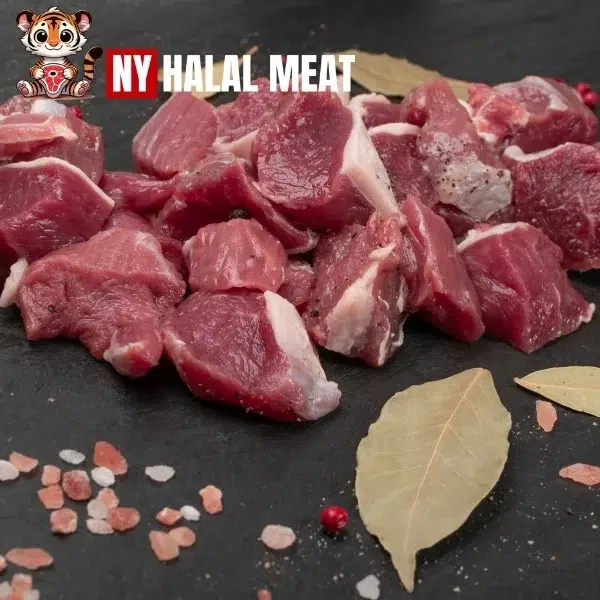Why Do Some Restaurants Serve Halal Meat While Others Don’t?
The choice to serve halal meat in restaurants is influenced by several factors, such as customer demand, ethical considerations, supply chain challenges, and business decisions. Halal meat is produced according to Islamic dietary laws, which dictate how animals should be slaughtered and processed. But why do some restaurants offer halal meat while others don’t? In this article, we will explore the reasons behind this decision and its implications for both restaurant owners and consumers.
Understanding Halal Meat and Its Importance
Halal meat is meat that comes from animals slaughtered following specific guidelines outlined in Islamic law. The slaughter process includes reciting a prayer (Bismillah) and ensuring the animal’s blood is drained, making the meat permissible for Muslims to consume. Halal meat also excludes certain forbidden foods like pork and alcohol.
For Muslims, consuming halal food is a religious obligation, making it a significant part of their dietary preferences. However, halal meat can be enjoyed by non-Muslims too, especially those who are looking for higher ethical standards in meat production or simply want to explore different culinary options.
Why Do Some Restaurants Offer Halal Meat?
1. Catering to Muslim Consumers
One of the primary reasons why restaurants serve halal meat is to cater to the Muslim community. Muslims represent a significant demographic in many parts of the world, especially in multicultural areas. In cities with a large Muslim population, restaurants may choose to offer halal options to meet the demand and accommodate their religious dietary needs.
By offering halal meat, restaurants can attract Muslim customers who prefer to eat food that aligns with their religious practices. This allows restaurants to tap into a specific customer base, build loyalty, and create a more inclusive dining environment.
2. Ethical and Humane Slaughter Practices
Some restaurant owners choose to offer halal meat due to the ethical considerations surrounding the slaughtering process. Halal slaughter requires that animals be treated humanely and slaughtered in a way that minimizes suffering. This approach emphasizes the use of sharp tools, quick slaughter, and draining the animal’s blood to ensure the meat is clean and pure.
For consumers who prioritize humane treatment of animals, halal meat may be seen as a more ethical option compared to other meat production methods. Restaurants that adopt halal meat could be responding to growing consumer demand for cruelty-free products.
3. Business Strategy and Expanding the Customer Base
Offering halal meat can be part of a restaurant’s broader business strategy. By including halal options on the menu, restaurants can diversify their offerings and appeal to a wider audience. This is especially relevant in diverse and multicultural neighborhoods where customers from various backgrounds may have specific dietary preferences.
Restaurants can gain a competitive edge by catering to both halal and non-halal consumers, potentially increasing their market share. Offering diverse options also reflects an inclusive business model that accommodates various tastes and dietary needs.
Why Don’t Some Restaurants Serve Halal Meat?
1. Lack of Demand in Certain Areas
In some regions, there may be insufficient demand for halal meat to justify its inclusion on a restaurant’s menu. In areas with a smaller Muslim population or where halal meat is not a common dietary preference, restaurants may not see it as profitable to offer halal options. For these restaurants, the cost of sourcing halal meat and maintaining separate kitchen areas for halal and non-halal foods may not be economically viable.
2. Sourcing and Supply Chain Challenges
Halal meat is typically sourced from specialized suppliers who adhere to specific religious standards. Some restaurants may find it difficult to secure a consistent supply of halal meat, especially if they are located in areas where halal suppliers are scarce. The cost and logistics involved in sourcing halal meat, as well as maintaining separate preparation areas to prevent contamination, may deter some restaurants from offering it.
3. Cultural or Religious Beliefs of the Owners
For some restaurant owners, the decision to serve halal meat may be influenced by personal or cultural beliefs. Owners who are unfamiliar with the halal slaughter process or do not have direct ties to Muslim communities may not feel the need to offer halal meat. In some cases, cultural factors or religious beliefs may play a role in determining whether a restaurant includes halal options on its menu.
4. Lack of Awareness or Understanding

Some restaurants may not offer halal meat simply because they are not aware of the growing demand for halal food. Without a clear understanding of the halal dietary requirements or the potential benefits of offering halal options, restaurant owners may overlook the opportunity to serve this niche market. Increased education about halal practices and customer demand may encourage more restaurants to consider offering halal meat.
Conclusion
The decision to serve halal meat in restaurants is influenced by various factors, including customer demand, ethical considerations, and supply chain challenges. Some restaurants offer halal meat to cater to the Muslim community, meet ethical standards, or expand their menu options. Others may not serve halal meat due to a lack of demand, sourcing challenges, or cultural factors. As the demand for halal food continues to grow, more restaurants may begin offering halal options to serve a diverse range of customers.
By understanding the reasons why some restaurants serve halal meat while others do not, consumers can make informed decisions about where to dine. Whether for religious, ethical, or business reasons, the presence of halal meat on a restaurant’s menu reflects a broader trend toward inclusivity and respect for diverse dietary needs.



[…] You Find Halal-Friendly Meals at […]